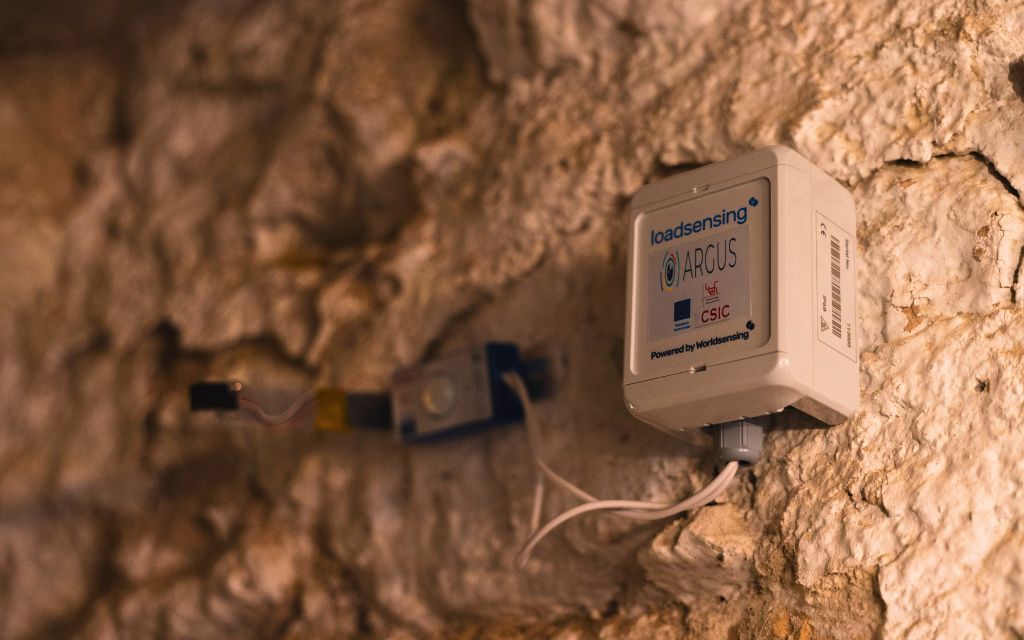We have sent feedback to the Culture Compass for Europe public consultation, aiming to improve the consistency of EU policies in the cultural sector.

The European Commission is preparing the Culture Compass, a new strategic framework designed to guide and strengthen EU cultural policy. This initiative aims to improve consistency across EU policies, enhance coordination between cultural funding and policy, and give greater visibility to the Union’s support for Europe’s diverse cultural landscape. By addressing key challenges and opportunities, the Culture Compass will work to improve the working conditions of artists and cultural professionals, promote Europe’s rich cultural heritage, and unlock the full competitive potential of the cultural and creative sectors.
As the ARGUS project, we wanted to have our say and contribute to this important initiative shaping the future of cultural policy in Europe.
Here is our contribution to the consultation, reflecting how ARGUS supports and aligns with the goals of the Culture Compass.
Culture Compass for Europe - Feedback by the ARGUS project
The ARGUS project (Non-destructive, scalable, smart monitoring of remote cultural treasures) welcomes the initiative of the Culture Compass for Europe and supports its ambition to enhance coherence, effectiveness, and impact of EU cultural policy.
ARGUS is a Horizon Europe-funded project coordinated by the Athena Research Centre, bringing together 13 partners from Greece, Cyprus, Germany, Italy, Spain, and Switzerland, including research organisations, universities, and SMEs. ARGUS develops advanced digital tools for the preventive preservation of remote built heritage assets, focusing on non-invasive monitoring, digital twin models, and AI-supported decision-making.
Europe’s built heritage faces increasing environmental, climatic, and human-induced threats, such as urbanization, vandalism or neglect. ARGUS responds to these challenges by delivering AI-powered monitoring systems, portable sensor-based data collection for real-time insights, and digital twin models that support predictive preservation strategies.
The project also promotes citizen engagement to enhance heritage-related decision-making and foster a sense of shared responsibility.
ARGUS directly contributes to the objectives of the Culture Compass
Culturally, ARGUS supports the safeguarding of Europe’s diverse heritage through sustainable, science-based approaches. Socially, it promotes inclusive access to heritage, particularly in remote or underrepresented regions, reinforcing cohesion and participation.
Economically, ARGUS contributes to the digital and green transitions by applying AI and data science in cultural contexts, supporting innovation, job creation, and digital skill development. By enhancing the monitoring and preservation of remote and lesser-known heritage sites, ARGUS also has the potential to boost sustainable cultural tourism and support heritage-related creative industries. The digital tools and data generated by the project can enable new storytelling formats, immersive experiences, and content creation opportunities, opening pathways for local entrepreneurship, cultural engagement, and the revitalisation of regional economies.
Environmentally, ARGUS provides methodologies for climate adaptation in heritage management, integrating data on climate change, weather events, pollution, and natural disasters to guide targeted interventions and strengthen resilience.
Externally, ARGUS supports international cooperation and contributes to relevant Sustainable Development Goals with global heritage preservation and cooperation targets.
ARGUS and the Digital Humanities
ARGUS operates at the intersection of science, technology, and the humanities. It exemplifies the role of Digital Humanities in shaping future cultural policy. This includes the use of digital tools to safeguard heritage assets, the development of digital repositories and infrastructures, the ethical integration of AI in humanities research, and the study of media and communication in the context of digital transformation. These efforts align with the broader objectives of the Culture Compass to enhance the cultural sector’s impact across EU policy fields.
We highlight the need for continued EU support for digital cultural heritage research, including sustained funding, clear ethical frameworks for AI, and stronger integration of environmental and cultural policies.
ARGUS provides evidence-based recommendations, best practices, and innovative solutions for policy makers, contributing real-time data, predictive models, and risk assessments that can inform responsive and sustainable cultural governance.
Finally, public engagement is central to ARGUS. Through citizen science and outreach activities, the project promotes awareness of environmental threats to heritage and encourages participatory approaches to preservation. This supports the Culture Compass's aim to enhance cultural participation, social cohesion, and democracy across Europe.
Ensuring a flexible cultural heritage future
ARGUS stands as a model of interdisciplinary, cross-border cooperation that advances cultural policy through scientific excellence, digital innovation, and inclusive engagement.
We recommend that the Culture Compass support such integrative approaches to ensure a resilient, future-oriented cultural ecosystem in Europe. Such integrative models are essential to realising the strategic vision of the Culture Compass for Europe.